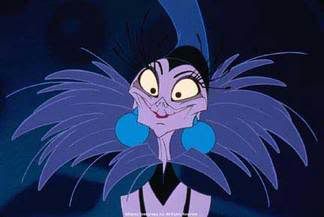The Delicate Plummeting Bodies
A friend is reading Stephen Dobyns. This is the only poem of his that I know, and I quite like it.
-------
A great cry went up from the stockyards and
slaughterhouses, and Death, tired of complaint
and constant abuse, withdrew to his underground garage.
He was still young and his work was a torment.
All over, their power cut, people stalled like streetcars.
Their gravity taken away, they began to float.
Without buoyancy, they began to sink. Each person
became a single darkened room. The small hand
pressed firmly against the small of their backs
was suddenly gone and people swirled to a halt
like petals fallen from a flower. Why hurry?
Why get out of bed? People got off subways,
on subways, off subways, all at the same stop.
Everywhere clocks languished in antique shops
as their hands composed themselves in sleep.
Without time and decay, people grew less beautiful.
They stopped eating and began to study their feet.
They stopped sleeping and spent weeks following stray dogs.
The first to react were remnants of the church.
They falsified miracles, displayed priests posing
as corpses until finally they sneezed or grew lonely.
Then governments called special elections to choose those
to join the ranks of the volunteer dead—unhappy people
forced to sit in straight chairs for weeks at a time.
Interest soon dwindled. Then the army seized power
and soldiers ran through the street dabbling the living
with red paint. You’re dead, they said. Maybe
tomorrow, people answered, today we’re just breathing;
look at the sky, look at the color of the grass.
For without Death each color had grown brighter.
At last a committee of businessmen met together,
because with Death gone money had no value.
They went to where Death was waiting in a white room,
and he sat on the floor and looked like a small boy
with pale blond hair and eyes the color of clear water.
In his lap was a red ball heavy with the absence of life.
The businessmen flattered him. We will make you king,
they said. I am king already, Death answered. We will
print your likeness on all the money of the world.
It is there already, Death answered. We adore you
and will not live without you, the businessmen said.
Death said, I will consider your offer.
How Death was restored to his people:
At first the smallest creatures began to die—
bacteria and certain insects. No one noticed. Then fish
began to float to the surface; lizards and tree toads
toppled from sun-warmed rocks. Still no one saw them.
Then birds began tumbling out of the air,
and as sunlight flickered on the blue feathers
of the jay, brown of the hawk, white of the dove,
then people lifted their heads and pointed to the sky
and from the thirsty streets cries of welcome rose up
like a net to catch the delicate and plummeting bodies.
-------
A great cry went up from the stockyards and
slaughterhouses, and Death, tired of complaint
and constant abuse, withdrew to his underground garage.
He was still young and his work was a torment.
All over, their power cut, people stalled like streetcars.
Their gravity taken away, they began to float.
Without buoyancy, they began to sink. Each person
became a single darkened room. The small hand
pressed firmly against the small of their backs
was suddenly gone and people swirled to a halt
like petals fallen from a flower. Why hurry?
Why get out of bed? People got off subways,
on subways, off subways, all at the same stop.
Everywhere clocks languished in antique shops
as their hands composed themselves in sleep.
Without time and decay, people grew less beautiful.
They stopped eating and began to study their feet.
They stopped sleeping and spent weeks following stray dogs.
The first to react were remnants of the church.
They falsified miracles, displayed priests posing
as corpses until finally they sneezed or grew lonely.
Then governments called special elections to choose those
to join the ranks of the volunteer dead—unhappy people
forced to sit in straight chairs for weeks at a time.
Interest soon dwindled. Then the army seized power
and soldiers ran through the street dabbling the living
with red paint. You’re dead, they said. Maybe
tomorrow, people answered, today we’re just breathing;
look at the sky, look at the color of the grass.
For without Death each color had grown brighter.
At last a committee of businessmen met together,
because with Death gone money had no value.
They went to where Death was waiting in a white room,
and he sat on the floor and looked like a small boy
with pale blond hair and eyes the color of clear water.
In his lap was a red ball heavy with the absence of life.
The businessmen flattered him. We will make you king,
they said. I am king already, Death answered. We will
print your likeness on all the money of the world.
It is there already, Death answered. We adore you
and will not live without you, the businessmen said.
Death said, I will consider your offer.
How Death was restored to his people:
At first the smallest creatures began to die—
bacteria and certain insects. No one noticed. Then fish
began to float to the surface; lizards and tree toads
toppled from sun-warmed rocks. Still no one saw them.
Then birds began tumbling out of the air,
and as sunlight flickered on the blue feathers
of the jay, brown of the hawk, white of the dove,
then people lifted their heads and pointed to the sky
and from the thirsty streets cries of welcome rose up
like a net to catch the delicate and plummeting bodies.


0 Comments:
Post a Comment
<< Home